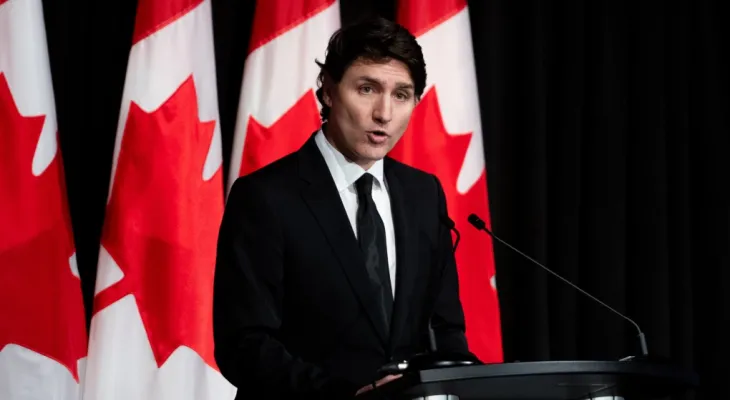Search here
Newspaper
Search here

Arab Canada News
News

Published: April 20, 2024
The federal budget's references to mortgage products targeting Canadian Muslims have made community members celebrate, alongside mortgage providers looking to serve them, despite the lack of details from the government about what is to come.
In the budget documents released on Tuesday, the federal government indicated that it is "exploring new measures to expand access" to financing methods such as "halal mortgages."
The budget provided little detail about the plan, other than stating that the government was consulting with "financial service providers and diverse communities" and that an update would come in the fall 2024 economic statement. Despite the lack of specific details, it has been a welcome addition to the Muslim community's budget.
Abdullah Mohiuddin, who has already obtained an Islamic or halal mortgage to buy a home in the Edmonton area, said, "It has been very happy news for me," adding that he welcomes the government's announcement that it will find a way to increase access to the financial product he believes his community needs.
Many companies in various Canadian provinces offer halal mortgages. Halal is an Arabic word that translates into English as "permissible" or "allowed" under Islamic law.
These mortgages are deliberately designed to comply with Canadian law and the doctrinal regulations of many Muslims, as interest, referred to in many Islamic texts as "riba," is prohibited.
While no interest is imposed, there are still costs associated with halal mortgages. In many cases, the costs are higher than those associated with traditional mortgages, and halal mortgage loans are often unavailable at the branches of major financial institutions.
Mohiuddin said, "It seems a bit expensive," adding that he believes the lack of firm legal definitions for halal mortgages in Canada is the reason for the high costs.
The announcement enhances credibility
Muslims looking for halal mortgages still face the burden of costs to obtain a loan to buy their home.
Industry service providers said these costs can be higher because, despite the demand, there are fewer service providers – and some halal mortgage providers are unable to secure the mortgage due to religious restrictions, which can increase what some financiers perceive as risks.
This may change with the federal announcement, executives at a lending company that offers Islamic mortgages based in Oakville, Ontario, say, adding that there is already a positive impact from the five mentions in the federal budget regarding halal mortgages.
Zuhair Naqvi, the founder and CEO of the company, said, "I already see momentum in our favor," adding that he believes the reference to high-level federal policies leads to credibility.
Naqvi said, "It allows me to go to banks, lenders, and authorities and tell them: look guys, the government supports this, so please don't worry about participating in this."
Mortgage providers who have worked with this lending company echo the same sentiments. Navid Malik, a mortgage agent at Dominion Lending Centres, said, "With the coming of the federal government, this really encourages me and excites me, and my phone is ringing a lot."
Naqvi said it's not about elevating Islamic mortgages above non-religious financial products or those targeting followers of other religions.
He continued, "Halal mortgages do not provide an advantage to us," adding that it's about "equality with non-Muslims."
Fewer service providers, higher costs
Malik estimated that the cost of a halal mortgage is about four percent higher than that of a traditional mortgage.
Islamic mortgage companies previously predicted that with broader availability, costs could decrease as more service providers compete for business, and risks would decrease with a larger pool of lenders.
Many of the cost discrepancies stem from what Islamic finance experts and industry stakeholders say are not just legal differences, but fundamental structural distortions in the mortgage system.
Some types of arrangements resemble a "lease-to-own" system, where the mortgage provider is also the owner of the home.
There are also some agreements where fees are imposed instead of standard interest payments.
However, the lack of specific legal definitions for the nature of interest-free Islamic mortgages often means that many mortgage insurance providers do not insure them – particularly because each halal service provider may structure its mortgage differently, and uninsured mortgages can sometimes be more expensive.
A 2010 report from the Canada Mortgage and Housing Corporation stated that Islamic financial products should not "present any particular difficulties" under Canadian accounting standards, but years later, they still remain far from widespread adoption.
There have been legal issues, such as who is registered on land title deeds and whether a lease-to-own agreement is subject to landlord and tenant legislation in various provinces.
Comments